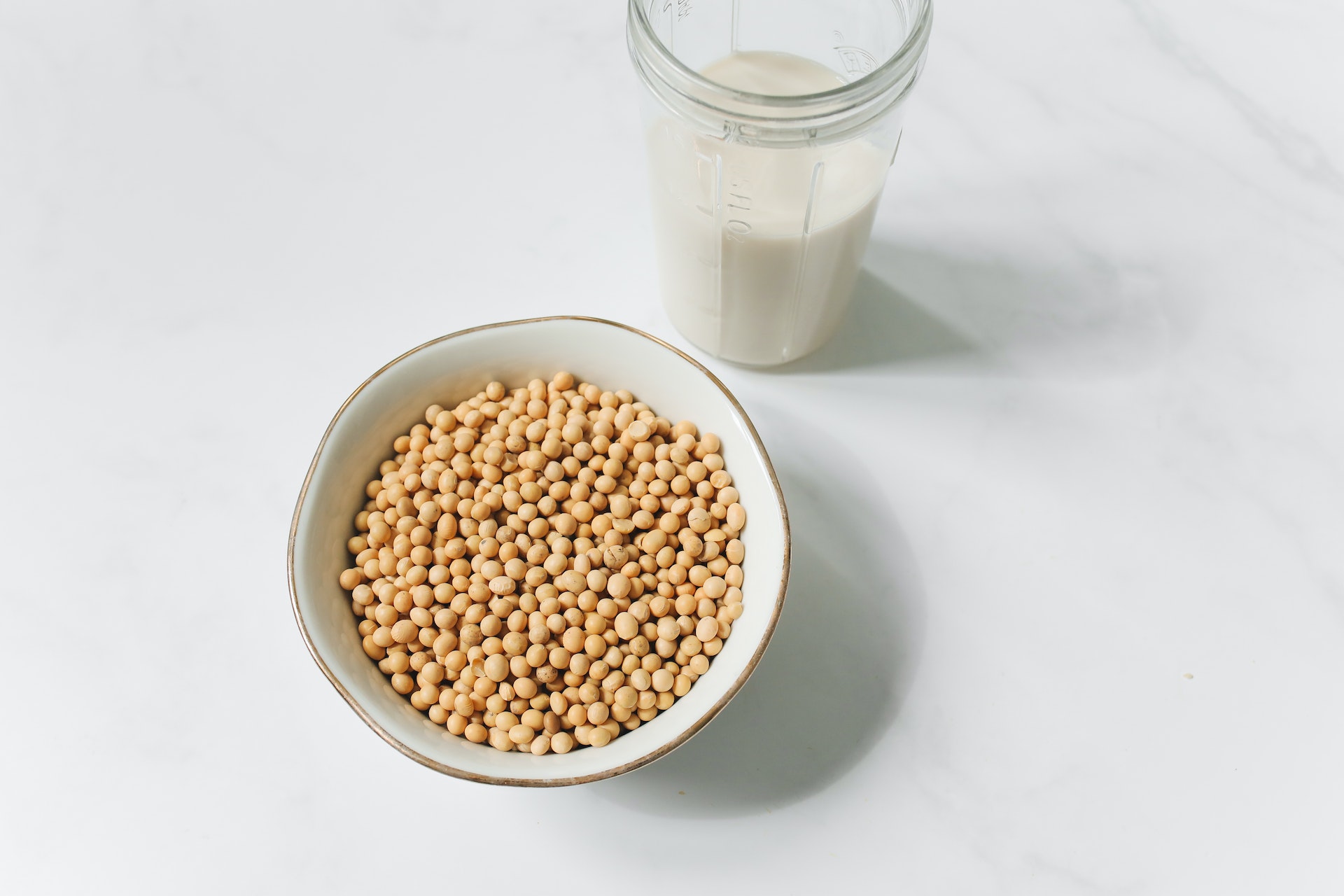Maybe you’ve heard that soy protein is bad for you or that soy protein is good for you, and you’re probably wondering: What is soy protein actually?
Soy foods have long been recognized as a good protein source, which explains why they have garnered unwavering support from USSEC, especially from people who follow a vegetarian diet and healthy diet.
The bean contains phytonutrients and antioxidants that are positively linked to various health benefits. Additionally, there are different soy products to choose from, including soybean oil, soy milk, soy protein, tofu, soy sauce, soy protein shakes, and soy flour.
Still on the fence? Not to worry! Here’s everything you need to know about soy protein’s health benefits and how soy protein is good for you.
What Are Soy Foods?
 Soy is made from soybeans (soya beans), a legume that grows in pods.
Soy is made from soybeans (soya beans), a legume that grows in pods.
Technically, it’s a vegetable, but due to its incredibly high-quality protein, which various legumes lack, it makes soybeans a superior alternative to dairy and meat, especially for people following a strict vegetarian or vegan diet.
The protein is somewhat similar to the ones we get from animal foods, including high dietary cholesterol levels and saturated fats. Hence why often people want to know the benefits of soy milk vs. cow milk.
What Are The Compounds In Soy Foods That Promote Health For a Healthy Diet?
Soybeans have health-promoting compounds, which include:
- Saponins
- Isoflavones
- Phytic acid
- Phytoestrogens
Five Facts About Soy Protein in Soy Foods
1. Healthy Alternative To Animal Protein
Let’s forget about the myths and consider the excellent nutritional values of soy. Soybean is a complete plant protein. It contains all essential amino acid building blocks used to manufacture various specialized protein structures your body needs.
Also, soy is cholesterol-free and low in saturated fats since only animal products and animals contain cholesterol. You can boost your intake of vitamins such as vitamin K, folate, minerals like iron, magnesium, and calcium by adding soy foods to your diet.
Moreover, you can’t get fibre from animal proteins, but you can level up your fiber intake if you eat whole soybeans.
2. Supports Muscle Building
 When you think of muscle building, what clicks in your mind is whey protein. Soy protein effectively promotes muscle growth.
When you think of muscle building, what clicks in your mind is whey protein. Soy protein effectively promotes muscle growth.
However, the controversial stigma against phytoestrogen has led some consumers to avoid it in the belief that these plants may lower testosterone levels and slower muscle development.
This is not true. Study shows neither isoflavone nor soy foods supplements have any significant effects on testosterone concentration in men. Soy is an incredible source of protein and rich in arginine.
3. Reduces Cancer Risk
Genistein, a compound in soybean, lowers the risk of cancer. Study shows isoflavones may help reduce risk of hormones linked to breast and prostate cancers.
Further studies show women who ate up soy isoflavone were at a lower risk of cancer both after and before menopause.
4. Soy Foods Manage Obesity
There was research conducted to find out the effect of soy isoflavone on body weight in rats.
The results showed that certain compounds in isoflavone prevented the building up of fat around the rodents’ organs. It concluded the isoflavone supplements could manage obesity.
5. Excellent Source Of Minerals And Vitamins
Soy foods are a high source of vitamins and minerals, including omega 3, fibre, protein, zinc, calcium, magnesium, folate, copper, phosphorus, thiamine, and vitamin k1. They are also typically lower in fats, including cholesterol and saturated fats. They are also lower in sodium than their animal-based alternatives.
Additional Soy Protein Nutritional Benefits
 Among all the legumes, the soya bean has the highest nutritional benefits in protein, vitamins, and minerals. It has 40% protein compared to animal products like milk, meat, and others. Animal beef has 22% while milk has 8%, thus giving it a high-ranking status and making soy milk a high protein soy milk.
Among all the legumes, the soya bean has the highest nutritional benefits in protein, vitamins, and minerals. It has 40% protein compared to animal products like milk, meat, and others. Animal beef has 22% while milk has 8%, thus giving it a high-ranking status and making soy milk a high protein soy milk.
Soya does not release nutrients directly. It has to undergo some process so that it can release maximum nutrients.
It is processed to kill the phytates and eliminate the foul odour resulting from soy getting cold.
One enzyme is found between the skin and bean called lipoxygenase, and another enzyme known as trypsin, both of which have to be deactivated through processing.
Trypsin prevents the digestion of protein when it gets into the stomach. Other enzymes are minor, and the key ones are the above.
Soy Protein Isolation and Processing: How to Make Soy Protein At Home?
Put water into boiling until it gets to 80 degrees. Add the soybeans and boil for 30 minutes. Remove from fire and add cold water.
Due to the sudden change of temperatures from very high to very low/cold, the bean releases all the necessary nutrients. Thereafter, drain the water and dry it under direct sunlight.
You can use the soybeans to make roasted soybeans or mill them to make soy protein powder which you can use for blending with other foods to enrich the nutrition value at a ratio of 1:3: Soy 1 and 3 of any other product. The ratio of water to soya is 1:5—one of soya and five times water.
Final Verdict for Soy Protein In The Diet
Without a doubt, soybeans are high in protein and quite nutritious, considering that they are higher in protein compared to other legumes. This superfood is rich in isoflavones, minerals, and vitamins.
Also, regular intake of soybean may reduce the risk of breast and prostate cancer. Additionally, it can alleviate the symptoms of menopause. So head to your nearby vegan restaurant and check their soybean dishes out.





























